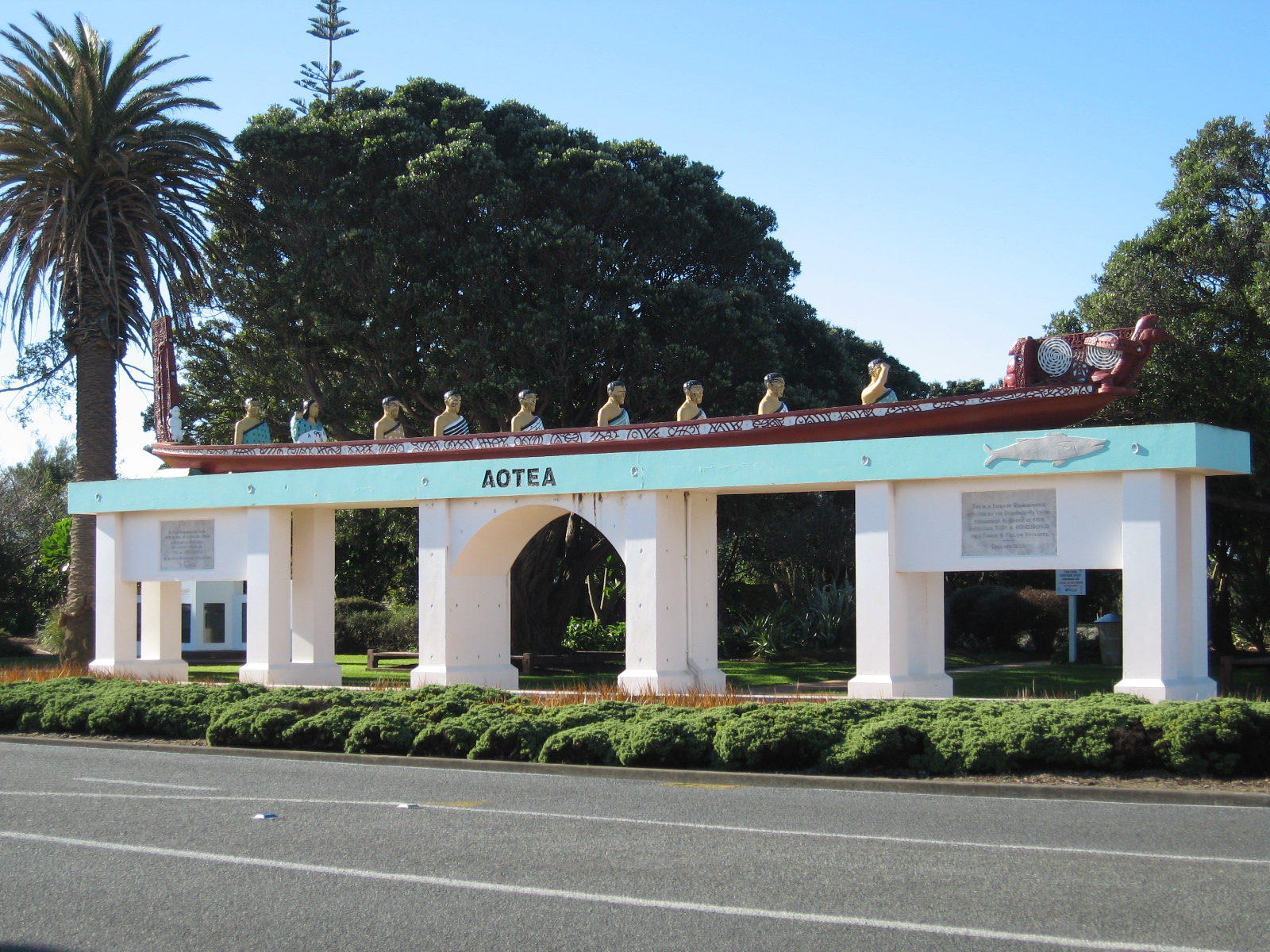|
Ngāti Apa (North Island) Claims Settlement Act 2010
Ngāti Apa is a Māori iwi (tribe) in Rangitikei District of New Zealand. Its rohe (traditional tribal lands) extend between the Mangawhero, Whangaehu, Turakina and Rangitīkei rivers. This area is bounded by Whanganui River in the north-west, and Manawatū River in the south-east. The marae in this district include Tini wai tara, Whangaehu, Kauangaroa, and Parewanui. History Ngāti Apa take their name from the ancestor Apa-hāpai-taketake, who was the son of Ruatea. Stories of Apa's deeds place the tribe's origins in the Bay of Plenty. To the west of Pūtauaki mountain is a place known to Māori as Te Takanga-a-Apa (the place where Apa fell), so named because, according to one account, it was where Apa was kicked to the ground by the pet moa of a man called Te Awatope. Because he limped after this incident, he was named Apa-koki (Apa with a limp). One explanation for the place name is that Apa fell to his death there. Another account says he was banished from the district aft ... [...More Info...] [...Related Items...] OR: [Wikipedia] [Google] [Baidu] |
Manawatū-Whanganui
Manawatū-Whanganui (; spelled Manawatu-Wanganui prior to 2019) is a region in the lower half of the North Island of New Zealand, whose main population centres are the cities of Palmerston North and Whanganui. It is administered by the Manawatū-Whanganui Regional Council, which operates under the name Horizons Regional Council. Name In the Māori language, the name is a compound word that originates from an old Māori waiata (song). The waiata describes the search by an early ancestor, Haunui-a-Nanaia, for his wife, during which he named various waterways in the district, and says that his heart () settled or momentarily stopped () when he saw the Manawatu River. ''Whanga nui'' is a phrase meaning "big bay" or "big harbour". The first name of the European settlement at Whanganui was ''Petre'' (pronounced Peter), after Lord Petre, an officer of the New Zealand Company, but the name was never popular and was officially changed to "Wanganui" in 1854. In the local dialect, ... [...More Info...] [...Related Items...] OR: [Wikipedia] [Google] [Baidu] |
Rangitikei River , a historic general electorate
{{disambiguation, geo ...
Rangitikei may refer to the following in New Zealand: * Rangitikei River, one of country's longest rivers * Rangitikei District, a district council in the Manawatu-Wanganui Region * Rangitīkei (New Zealand electorate), a current general electorate :* 1978 Rangitikei by-election, a by-election held in 1978 * Wanganui and Rangitikei Wanganui and Rangitikei is a former parliamentary electorate that existed from 1853 to 1860. It was represented by two Members of Parliament. Population centres The New Zealand Constitution Act 1852, passed by the British government, allowed Ne ... [...More Info...] [...Related Items...] OR: [Wikipedia] [Google] [Baidu] |
Ngati Rangi
''Ngati'' is a 1987 New Zealand feature film directed by Barry Barclay, written by Tama Poata and produced by John O'Shea (director), John O'Shea. Production ''Ngati'' is of historical and cultural significance in New Zealand as it is the first feature film written and directed by Māori people, Māori. Producer John O'Shea, an icon in New Zealand's film industry, was the founder of independent film company Pacific Films. The film is set in 1948 in a small town on the east coast of New Zealand during the impending closure of a freezing works and the threat of unemployment for the local community. ''Ngati'' was screened as part of Cannes' Critics Week. Synopsis Set in and around the fictional town of Kapua in 1948, Ngati is the story of a Māori community. The film comprises three narrative threads: a boy, Ropata, is dying of leukaemia; the return of a young Australian doctor, Greg, and his discovery that he has Māori heritage; and the fight to keep the local freezing works ope ... [...More Info...] [...Related Items...] OR: [Wikipedia] [Google] [Baidu] |
Ati Hau
Ati or ATI may refer to: * Ati people, a Negrito ethnic group in the Philippines **Ati language (Philippines), the language spoken by this people group ** Ati-Atihan festival, an annual celebration held in the Philippines *Ati language (China), an unclassified Loloish language of Huaning County, Yunnan, China * Ati, a queen of the fabled Land of Punt in Africa * Ati, Chad, a town in Chad * Ati, Iran, a village in Khuzestan Province, Iran * Maha Ati, one of the nine subdivisions of Buddhist Tantra in the Nyingma school The acronym ATI may refer to: Academic institutions * Auckland Technical Institute, now the Auckland University of Technology, Auckland, New Zealand * Ohio State University Agricultural Technical Institute, known as Ohio State ATI * An associate of the Tax Institute of Australia Electronics and information technology * ATI Technologies, a former Canadian semiconductor company manufacturing GPUs and chipsets * Acronis True Image, cloning and backup software * ... [...More Info...] [...Related Items...] OR: [Wikipedia] [Google] [Baidu] |
Aotea (canoe)
In Māori mythology, Māori tradition, ''Aotea'' is one of the canoes () in which Māori migrated to New Zealand; it is particularly associated with the tribes of Taranaki and Whanganui, including Ngāti Ruanui, Ngāruahine, Ngā Rauru and other tribal groups. History ''Aotea'' was a double canoe built by Toto from half of a great tree from Hawaiki, the other half being used for the canoe ''Matahourua''. Toto gave ''Aotea'' to his daughter Rongorongo (wife of Turi), Rongorongo, who was married to Turi (Māori ancestor), Turi. In strife with the chief Uenuku, Turi killed the chief's son and thereafter had to flee for New Zealand with 33 passengers. During the voyage, they stopped at Rangitahua and encountered some of the crew from the ''Kurahaupō'' canoe (Craig 1989:24). The ''Aotea'' canoe arrived at Aotea Harbour on the west coast of the North Island, and its people eventually settled in the Taranaki region. Aircraft 'Aotea' was the name given to the first Jumbo Jet (a Boe ... [...More Info...] [...Related Items...] OR: [Wikipedia] [Google] [Baidu] |
